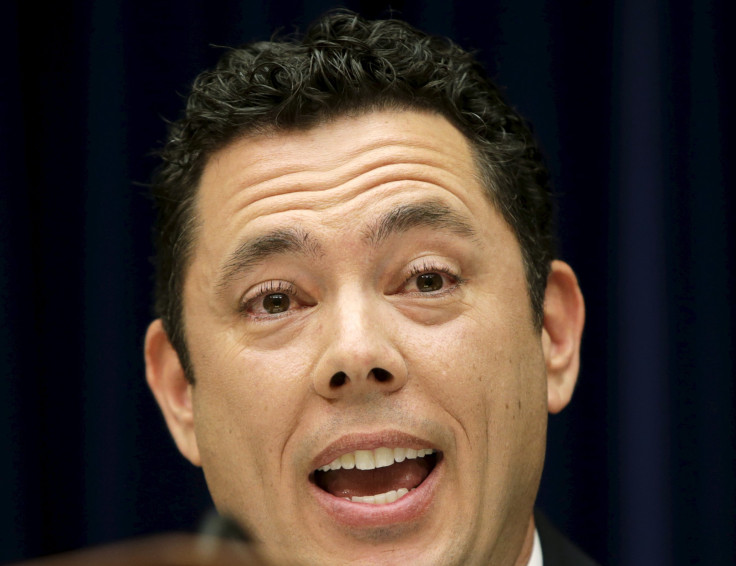Contrary To Popular Belief, Men Use Planned Parenthood Too – And They Love It

After his long-term relationship ended and Shawn Forno started dating again, one place came to mind when he decided to get screened for sexually transmitted infections: Planned Parenthood. “I knew that girls went there to get tested for super cheap and I figured I could too,” Forno, a 33-year-old freelance writer in New York City, said. “It worked out pretty well.”
A common misconception is that Planned Parenthood is only for young women, especially women seeking abortions. The myth is powerful and widespread enough for Senate Republicans to have passed a bill on Thursday to cut funding to any entity that “provides for abortions,” which would effectively cut federal funds for Planned Parenthood. That men depend on Planned Parenthood (and love it) is often overlooked in this heated debate.
“Had I not known about Planned Parenthood five years ago, I probably would not have started getting tested,” Forno said. At the time, Forno did not have health insurance and he soon came to rely on Planned Parenthood for regular testing. He still goes back, even though he now has health insurance. “It’s been a nice relationship,” he said, “Planned Parenthood is awesome.”
The overwhelming majority (97 percent) of services that Planned Parenthood offers actually have nothing to do with abortion, other than preventing it. In 2013, testing and treatment for sexually transmitted infections and diseases, like HIV/AIDS, constituted about 42 percent of its services and contraception made up 34 percent its services, according to the organization’s 2013-2014 annual report. Planned Parenthood did not respond on Friday for repeated requests for a statistical breakdown of how many men it treats.
Planned Parenthood receives some 52 million visits annually. It also provides services that screen for cancer and workers conduct routine checkups, for both men and women, although many men only use the provider to get tested for STIs. But it is abortions, which make up 3 percent of services, that draw the most controversy.
'Lost In The Culture Wars'
The most recent episode erupted in July when a group of anti-abortion activists published a series of videos that purportedly showed Planned Parenthood employees discussing the illegal sale of parts from aborted fetuses. The videos were subsequently found to have been heavily doctored, but that revelation failed to deter legislators from trying to cut federal funding to the provider.

Several legislators have made statements implying that Planned Parenthood’s primary mission is to abort babies. On his website, Rep. Jason Chaffetz, R-Utah, who has co-sponsored legislation to defund Planned Parenthood, describes it as “America’s largest abortion provider.” Sen. John Cornyn, R-Texas, has tweeted that Planned Parenthood carried out abortions using taxpayer dollars, which is in violation of federal law. But the abortions Planned Parenthood does perform do not use federal funding.
“If we could identify it as more of a mainstream organization and have a better sense of how many men come for reproductive services that have nothing to do with abortion, that might be helpful,” Claire Brindis, a professor at the Institute for Health Policy Studies at the University of California, San Francisco, said. Planned Parenthood’s role in reducing problems like infant mortality and poverty in the U.S. “is something that seems to be lost in the shuffle, lost in the culture wars,” she said.
Peace Of Mind
In the afternoon on the Wednesday before Thanksgiving, Saul Martinez had his first-ever appointment with Planned Parenthood. The 29-year-old went to his local clinic in Oklahoma City and had his blood drawn and gave a urine sample. It was fast, cost $25 with his insurance and the test results, for HIV and other sexually transmitted infections, all came back negative.
“It was a great experience,” he said. Martinez said he planned to go back “just to get regularly tested and be aware" of his health. He had health insurance and he could have gone to another doctor, but he knew Planned Parenthood offered such services and so he said he wanted to get tested there, adding, “I support everything they do.”
“I’m a dude. Can I go to Planned Parenthood?” YES you can (and should)! Make an appointment: http://t.co/7pU7PBa3sJ #GuysPlan
— Planned Parenthood (@PPFA) June 12, 2014For other men, visits to Planned Parenthood were less deliberate.
Scott Puckett, a 43-year-old in Bloomington, Illinois, went several years ago, when he and his girlfriend began dating and she suggested they get tested together. They picked Planned Parenthood for the sake of convenience.
“I was kind of surprised,” he said. “I didn’t know that Planned Parenthood offered healthcare services to men,” he added, describing that the experience was "as simple a process as it could be,” and affordable enough that he could not remember how much he’d paid.
Michael Davis, 54, made his first and only, visit to Planned Parenthood in 1989, when he and his girlfriend at the time suspected they had genital warts. Both were unemployed, but Planned Parenthood screened them and treated them for free, to his surprise. “I didn’t have a clue about it,” said Davis, a student getting his associate degree in aviation technology in Tucson, Arizona. “I always assumed that it was directed more toward women.”
Davis said he hadn’t been back to Planned Parenthood since, but he does send donations to the organization every few years.
For Forno, Planned Parenthood has become his go-to healthcare provider. Booking appointments was easy through an online portal and he liked the doctors there because they were easy to talk to, especially about sexual health issues. His test results, which have always been negative, bring him peace of mind. “They’re still at the top of my healthcare Rolodex,” he said.
© Copyright IBTimes 2024. All rights reserved.












